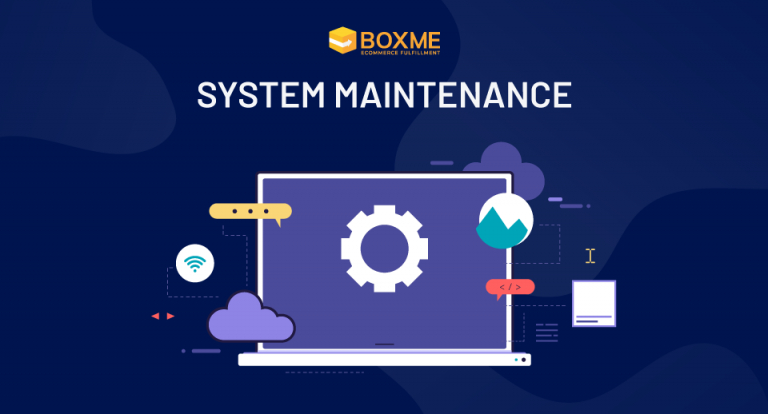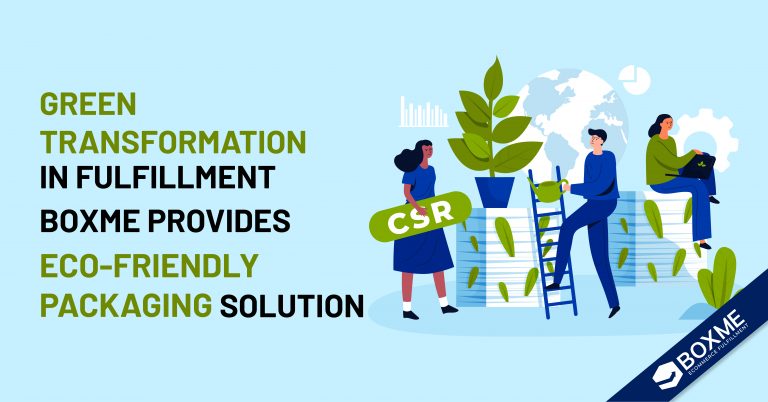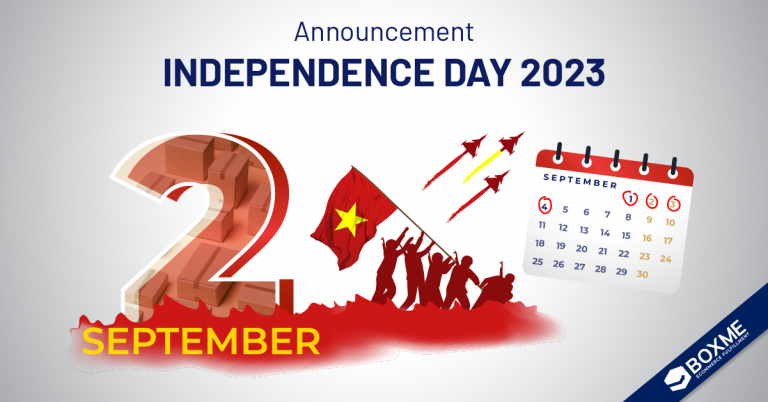Entering the world of import-export can be exhilarating, profitable and confusing all at the same time.
When you’re beginning to connect with buyers and sellers for your international trade business, you may notice a lot of acronyms in their listings. Industry-specific shorthand such as AWB, DA, DP, DAP and LC can feel like an overwhelming alphabet soup of terms to learn at first.
->> 5 things to know before starting your import/export business.
If you’re new to importing and exporting, here are some of the most common terms to get you started.
-
AWB: Air Waybill
 This is a receipt for transport by air. It also contains the conditions of transport.
This is a receipt for transport by air. It also contains the conditions of transport.
-
B/L: Bill of Lading
 This document serves as a title for transfer of ownership of goods when they are transported by ship.
This document serves as a title for transfer of ownership of goods when they are transported by ship.
-
CAD: Cash against Documents
 This agreement means that the buyer will pay for goods as soon as he or she receives the seller’s documents.
This agreement means that the buyer will pay for goods as soon as he or she receives the seller’s documents.
There is usually a third-party intermediary involved to ensure that the transaction runs smoothly.
-
CFR or C&F: Cost and Freight
 The seller must clear the goods for export and pay all transportation costs, but once the goods pass the ship’s rail in the port of shipment, the risk of loss is transferred to the buyer.
The seller must clear the goods for export and pay all transportation costs, but once the goods pass the ship’s rail in the port of shipment, the risk of loss is transferred to the buyer.
-
CIF: Cost, Insurance and Freight
 Similar to CFR, except that the seller has to purchase marine insurance against the buyer’s risk of loss.
Similar to CFR, except that the seller has to purchase marine insurance against the buyer’s risk of loss.
-
CIP: Cost and Insurance Paid
 Similar to CIF, except that CIP is for all modes of transport, only minus sea freight.
Similar to CIF, except that CIP is for all modes of transport, only minus sea freight.
The seller pays for transport and insurance against the buyer’s risk of loss from carrier to buyer (until they reach the carrier, the seller carries the risk).
-
CPT: Carriage Paid to…
Similar to CIP, except that the seller is not obligated to purchase insurance.
-
D/C: Documentary Collection
 In this transaction, the seller’s bank will collect payment by sending the shipping documents to the buyer’s bank along with payment instructions.
In this transaction, the seller’s bank will collect payment by sending the shipping documents to the buyer’s bank along with payment instructions.
Because shipping is initiated before payment is received, D/Cs are riskier for the seller and they are only recommended in situations where there has been a long-standing trade relationship established.
-
D/A: Documents Against Acceptance
This is a form of D/C where the buyer pays in order to release the documents he/she will need to claim the goods.
-
D/P: Documents Against Payment
Another form of D/C where the buyer does not have to pay in order to receive the documents. Instead, he/she will have to sign an agreement to pay at some later specified date.
Of all D/C options, this one offers the least amount of protection on sellers’ part.
-
DAF: Delivered at Frontier
 The seller must pay to transport the goods to a land frontier, but before the customs border of the adjoining country. This term is for land transport only.
The seller must pay to transport the goods to a land frontier, but before the customs border of the adjoining country. This term is for land transport only.
-
DDP: Delivered Duty Paid
The seller bears all risks and costs of transport, including duties and import taxes, so as to deliver the goods to the seller.
-
DDU: Delivered Duty Unpaid
 The seller bears all risks and costs of transport, except for duties and import taxes. The buyer is responsible for customs clearance, and for any consequences resulting from the inability to obtain it.
The seller bears all risks and costs of transport, except for duties and import taxes. The buyer is responsible for customs clearance, and for any consequences resulting from the inability to obtain it.
-
DEQ: Delivered ex Quay
The seller ensures a timely arrival, and covers all costs and risks until the goods reach the destination port, including discharge onto the quay or wharf.
-
DES: Delivered ex Ship
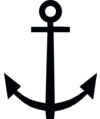 Similar to DEQ, except that the seller does not have to provide discharge onto the quay or wharf.
Similar to DEQ, except that the seller does not have to provide discharge onto the quay or wharf.
-
EXW: Ex Works
 Here, the seller makes the goods available on his/her premises (i.e. the manufacturing facility). The buyer bears the full cost and risk involved in transporting and clearing the goods.
Here, the seller makes the goods available on his/her premises (i.e. the manufacturing facility). The buyer bears the full cost and risk involved in transporting and clearing the goods.
This option requires the smallest obligation of the seller.
-
FCA: Free Carrier
The seller must provide the goods (cleared for export) into the charge of a carrier, or of another person, named by the buyer at the named place or point. The buyer, from that point, has to bear all costs and risks.
-
FAS: Free Alongside Ship
 The seller must provide the goods (cleared for export) alongside the vessel at the named port of shipment. The buyer has to bear all costs and risks from that point.
The seller must provide the goods (cleared for export) alongside the vessel at the named port of shipment. The buyer has to bear all costs and risks from that point.
This term can only be used for water transport when using a chartered ship, or when goods are not containerized.
-
FCL: Full Container Load
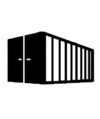 This usually means that goods in the container are from one seller who packed the container, going to one buyer who will unpack the container.
This usually means that goods in the container are from one seller who packed the container, going to one buyer who will unpack the container.
-
FIS: Free into Store
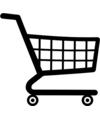 Similar to DDP, this unofficial trade term means that the seller’s price includes all costs up to the point of delivery to the buyer.
Similar to DDP, this unofficial trade term means that the seller’s price includes all costs up to the point of delivery to the buyer.
-
FOB: Free On Board
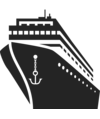 Once the goods have passed over the ship’s rail at the named port of shipment, the buyer has to bear all costs and risks from that point, including clearing the goods for export.
Once the goods have passed over the ship’s rail at the named port of shipment, the buyer has to bear all costs and risks from that point, including clearing the goods for export.
This term can only be used for water transport when using a chartered ship, or when goods are not containerized.
-
LCL: Less than Container Load
A small amount of cargo that is not enough to be economically shipped as FCL. It will be combined with other LCL cargo from other shippers going to the same port.
Also take a look at import/export-specific solutions provided by companies such as Boxme to spare yourself of the headaches involving some of these terms.
->> Tramping down import/export barriers for a smooth business expansion.
[vc_separator color=”orange” align=”align_left” style=”dashed”][vc_column_text]BoxMe is the premier cross-border e-Commerce fulfillment network in South East Asia, enabling world-wide merchants to sell online into this region without needing to establish local presence. We are able to deliver our services by aggregating and operating an one-stop value chain of logistic professions including: International shipping, customs clearance, warehousing, connection to local marketplaces, pick and pack, last mile delivery, local payment collection and oversea remittance.
If you have any question about Boxme Asia or how we can support your business, please contact us directly by referring to our hotline. We are glad to be of service![/vc_column_text]
[vc_raw_js]JTNDJTIxLS1IdWJTcG90JTIwQ2FsbC10by1BY3Rpb24lMjBDb2RlJTIwLS0lM0UlM0NzcGFuJTIwY2xhc3MlM0QlMjJocy1jdGEtd3JhcHBlciUyMiUyMGlkJTNEJTIyaHMtY3RhLXdyYXBwZXItYTkxNTk3YzUtMzU5ZC00ZjcxLTlhMTctMDJiNzUwMWVmYWRjJTIyJTNFJTNDc3BhbiUyMGNsYXNzJTNEJTIyaHMtY3RhLW5vZGUlMjBocy1jdGEtYTkxNTk3YzUtMzU5ZC00ZjcxLTlhMTctMDJiNzUwMWVmYWRjJTIyJTIwaWQlM0QlMjJocy1jdGEtYTkxNTk3YzUtMzU5ZC00ZjcxLTlhMTctMDJiNzUwMWVmYWRjJTIyJTNFJTNDJTIxLS0lNUJpZiUyMGx0ZSUyMElFJTIwOCU1RCUzRSUzQ2RpdiUyMGlkJTNEJTIyaHMtY3RhLWllLWVsZW1lbnQlMjIlM0UlM0MlMkZkaXYlM0UlM0MlMjElNUJlbmRpZiU1RC0tJTNFJTNDYSUyMGhyZWYlM0QlMjJodHRwcyUzQSUyRiUyRmN0YS1yZWRpcmVjdC5odWJzcG90LmNvbSUyRmN0YSUyRnJlZGlyZWN0JTJGMjE0MTUyOCUyRmE5MTU5N2M1LTM1OWQtNGY3MS05YTE3LTAyYjc1MDFlZmFkYyUyMiUyMCUzRSUzQ2ltZyUyMGNsYXNzJTNEJTIyaHMtY3RhLWltZyUyMiUyMGlkJTNEJTIyaHMtY3RhLWltZy1hOTE1OTdjNS0zNTlkLTRmNzEtOWExNy0wMmI3NTAxZWZhZGMlMjIlMjBzdHlsZSUzRCUyMmJvcmRlci13aWR0aCUzQTBweCUzQiUyMiUyMHNyYyUzRCUyMmh0dHBzJTNBJTJGJTJGbm8tY2FjaGUuaHVic3BvdC5jb20lMkZjdGElMkZkZWZhdWx0JTJGMjE0MTUyOCUyRmE5MTU5N2M1LTM1OWQtNGY3MS05YTE3LTAyYjc1MDFlZmFkYy5wbmclMjIlMjAlMjBhbHQlM0QlMjJMZXZlcmFnZSUyME91ciUyMFNvbHV0aW9uJTIyJTJGJTNFJTNDJTJGYSUzRSUzQyUyRnNwYW4lM0UlM0NzY3JpcHQlMjBjaGFyc2V0JTNEJTIydXRmLTglMjIlMjBzcmMlM0QlMjJodHRwcyUzQSUyRiUyRmpzLmhzY3RhLm5ldCUyRmN0YSUyRmN1cnJlbnQuanMlMjIlM0UlM0MlMkZzY3JpcHQlM0UlM0NzY3JpcHQlMjB0eXBlJTNEJTIydGV4dCUyRmphdmFzY3JpcHQlMjIlM0UlMjBoYnNwdC5jdGEubG9hZCUyODIxNDE1MjglMkMlMjAlMjdhOTE1OTdjNS0zNTlkLTRmNzEtOWExNy0wMmI3NTAxZWZhZGMlMjclMkMlMjAlN0IlN0QlMjklM0IlMjAlM0MlMkZzY3JpcHQlM0UlM0MlMkZzcGFuJTNFJTNDJTIxLS0lMjBlbmQlMjBIdWJTcG90JTIwQ2FsbC10by1BY3Rpb24lMjBDb2RlJTIwLS0lM0U=[/vc_raw_js][vc_row][vc_column][vc_column_text][/vc_column_text][/vc_column]
.


